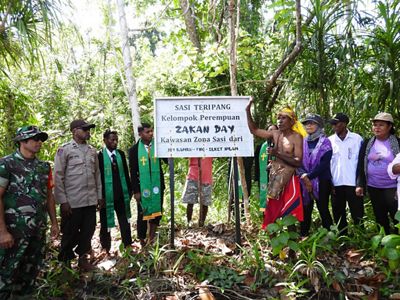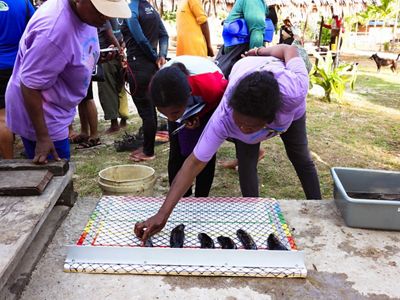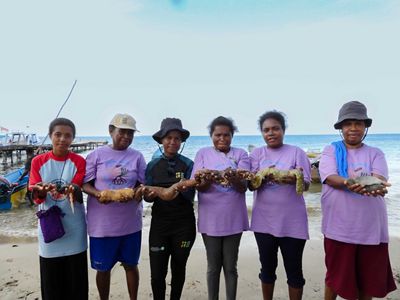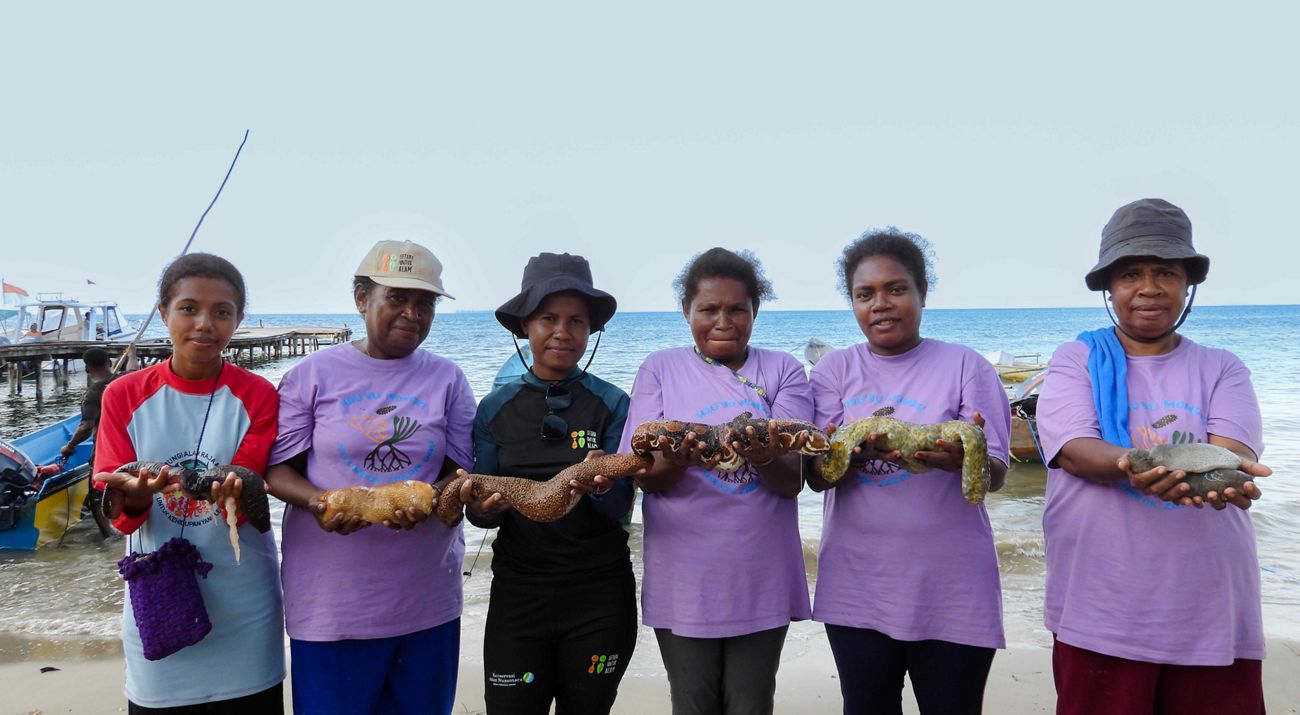Media Contacts
-
Maria Adityasari
Communications Specialist YKAN
Yayasan Konservasi Alam Nusantara
Email: maria.adityasari@ykan.or.id
The Zakan Day women's group from Salafen Village, North Misool District, Raja Ampat Regency, held The buka sasi event on 15 November 2023. The sasi area has been closed since one year ago, on 29 September 2022. The Salafen community will harvest sasi in the form of sea cucumbers for eight days; then, the sasi area will be closed again until next year.
Sasi is a traditional practice for managing natural resources sustainably, which is still applied today in the Maluku and Papua regions. Sasi is used on land and sea. Sasi area management is carried out with the principle of opening and closing the management area within a certain period. While the Sasi area is closed, no one can take natural resources until it is time to open it.
Zakan Day received assistance in sustainable sasi management based on science through a partnership with Yayasan Konservasi Alam Nusantara (YKAN). "Sasi is a tradition that needs to be maintained because it is closely related to conservation activities. We also accompany Zakan Day to manage sasi appropriately to preserve marine biota. "That way, the benefits of the sasi tradition can be felt continuously," said YKAN Bird's Head Seascape Senior Manager Lukas Rumetna.

Women's sasi group
Traditionally, the management of the sasi area is carried out by men. However, in several villages on Misool Island, Raja Ampat, namely Kapatcol, Aduwei, and Salafen, women have been entrusted with managing the sasi area.
Salafen Village has a Zakan Day Group consisting of 10 people to manage the sasi area of 497.85 hectares, covering Tanjung Elket Nilam to Je'i Kamku. The village government, church, and traditional leaders recognize this group's ownership rights. The name Zakan Day itself is taken from the name of the ancestor of the Day clan.
"Women must play an important role in protecting nature. Continuing the sasi tradition is one of our efforts to keep nature sustainable. "In the process, the Zakan Day Group also involves the younger generation, so it is hoped that the sasi tradition will not be broken," said Zakan Day Group Chair Serly Widya Dakam Day.

Serly added that the sales proceeds from buka sasi were used to support religious and community activities and education savings for the people of Salafen Village. Therefore, the sasi actions carried out by Zakan Day not only impact nature conservation but also bring many benefits to the village community.
Buka sasi begins with a service in the church, followed by a traditional ritual to ask for permission from the ancestors so that the sasi harvest will be abundant and bring blessings. After the traditional ceremony procession is finished, the community heads to the sasi area to collect sea cucumbers, usually done by free diving or called molo in the local language.
Residents who participate in the sasi harvest must comply with the agreed rules, including that the size of the sea cucumber is at least 15 centimeters. If it is less, it must be returned to the sea, and environmentally friendly fishing gear must be used.

Apart from the Zakan Day group from Salafen Village, the Joom Jak Sasi women's group from Aduwei Village, North Misool District, Raja Ampat Regency, which YKAN and partners also accompanied, opened the sea sasi on October 19, 2023. This group comprises 60 women who manage the sasi area of 265.55 hectares covering Tanjung Hanta to Muara Ful (Joomsip). Until the 9th day since opening sasi, the Joom Jak group collected 953 sea cucumbers with an average size of 28.4 centimeters.
As a development partner of the Southwest Papua Provincial Government, strengthening the role of women in conservation through the sasi tradition is a concern for YKAN. "Conservation in the Bird's Head Seascape is effective because it is supported by a socio-cultural system and the role of women, which are translated into local policies. One example is the sasi tradition. "Good management of the Sasi area will certainly contribute positively to the community's ecological, social, and economic aspects," Muhammad Ilman, YKAN Indonesia Ocena Program, concluded.
Yayasan Konservasi Alam Nusantara (YKAN) is a scientific-based non-profit organization that has been present in Indonesia since 2014. With the mission of protecting lands and waters as life support systems, we provide innovative solutions to realize the harmony of nature and humans through effective natural resource management, prioritizing a non-confrontational approach, and building a network of partnerships with all stakeholders for a sustainable Indonesia. For more information, visit ykan.or.id.


